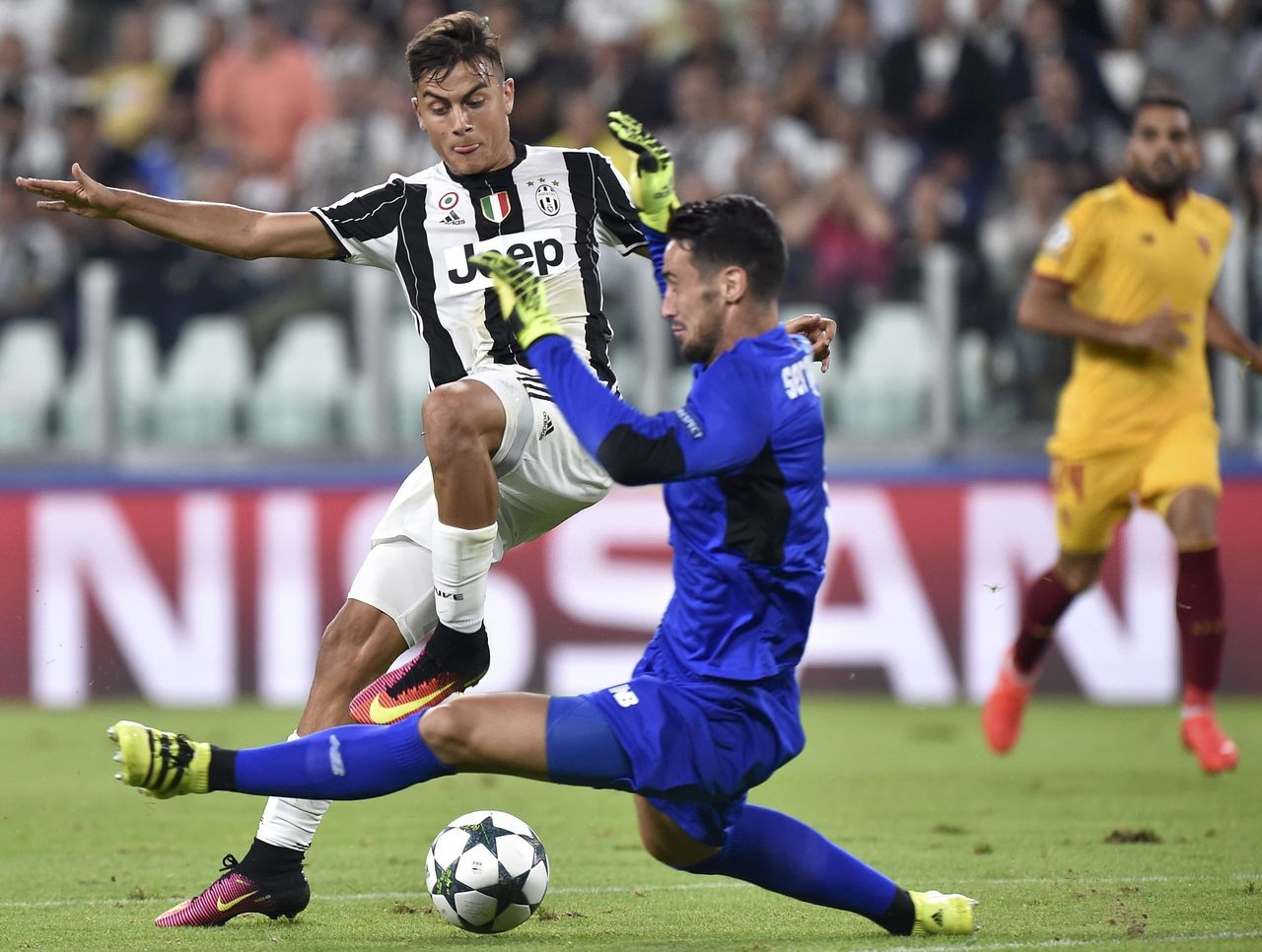Why Juventus fans shouldn't overreact after Sevilla letdown
You might say that the Champions League is a marathon, not a sprint. But you would be wrong. In reality it is neither of those things - not a single race at all, but a series of gradually intensifying heats, spread out across too many months to be considered as a single contest.
Between injuries, shifting form and tactical adaptation, too much can change over the course of a season. Results in the fall are often poor indicators for what will happen from February onwards.
Just ask Barcelona, who thrashed Roma 6-1 last November only to be sunk by Atletico Madrid in the quarter-finals. Or the Real Madrid team of 2014-15, who stormed to the top of its group with a perfect record and a plus-14 goal difference, but later came unstuck against a Juventus side that had lost two of its first three games.
Back then the Bianconeri were still perceived as underdogs - their run to the final a surprise even to their own fans. Many shared the perception of recently departed manager Antonio Conte, who had famously dismissed the team’s prospects of winning the Champions League by lamenting that you could not expect to eat in a €100 restaurant when all you had was a €10 bill in your wallet.
How absurd those comments sound today, after a summer in which Juventus splurged almost €150 million on Gonzalo Higuain, Miralem Pjanic and Marko Pjaca. True enough, the club had raised a similar sum by selling Paul Pogba and Alvaro Morata, but CEO Beppe Marotta was adamant that the new arrivals had not been dependent on departures.
Either way, nobody should doubt the club’s intention to compete for European football’s biggest prize. Juventus believe that it is better equipped to do so than at any point since the 2006 Calciopoli scandal.

Pogba is gone, but the depth in this squad - reinforced with astute free signings and loan deals - is extraordinary. Who else in Europe can boast such high-quality alternatives at both full-back positions - Dani Alves competing with Stephan Lichtsteiner on the right, while Patrice Evra and Alex Sandro vie for opportunities on the left? In the centre, Medhi Benatia was added to back up the BBC.
The club's start to domestic competition has been ominous. After Juventus extended its perfect start with a dominant performance in a 3-1 win over Sassuolo on Saturday, more than one newspaper seemed ready to hand Juve the Serie A title and be done with it. The match report in La Gazzetta Sportiva opined that there was only one question left to be asked: "in what month will Juve, for the umpteenth time, be crowned champions?"
Nobody at the club itself would be so presumptuous. Nevertheless, it is clear that this year’s team will be judged more keenly on what it can achieve in Europe than at home. The anticipation for Juventus’s Champions League opener at home to Sevilla on Wednesday was intense.
In the tunnel before kick-off, excited mascots shrieked the name of Paulo Dybala. But more than anything, the world was waiting to see how effectively the Argentinian would pair with his compatriot Higuain. They had combined well against Sassuolo, their first start together, but could they be so effective against the intense pressing of a Jorge Sampaoli team?
The answer, on that front, was mixed. Sevilla suffocated Juventus throughout the first half, crunching into challenges relentlessly and earning 55 percent of possession before the interval. By that stage, neither Dybala nor Higuain had managed a single touch in the opposition box.
0 - Gonzalo Higuain and Paulo Dybala had no touches in the opposition box in the 1st half of #JuveSFC. Far. pic.twitter.com/4kgnAcyZ2w
— OptaPaolo (@OptaPaolo) September 14, 2016
And yet, the host still had its moments. Twice in the first 15 minutes Dybala played Sami Khedira through on goal, only for the German to fluff his lines. On the second chance, it had been Higuain knocking the initial ball down for his strike partner, who improvised a brilliant chip over the defence even while losing his footing.
They combined well again in the 31st minute, Higuain chesting the ball down for Dybala just outside the box. A bold sliding challenge from Sevilla goalkeeper Sergio Rico denied him the chance to turn and shoot.
Juventus saw more of the ball in the second half, but the football still lacked fluidity. Manager Massimiliano Allegri was frustratingly slow to implement changes, only introducing Pjanic in the 68th minute. The suspicion is that he was hoping to hold something back for Sunday’s Derby d’Italia against Inter.
Even so, the Italian side created enough chances to win the game. Alves, increasingly aggressive in his incursions down the right, sent over a series of crosses that ought to have yielded a goal. Instead, Higuain saw one effort thud down off the underside of the crossbar, before Sergio Rico pulled out a spectacular injury-time save to deny Alex Sandro.
The match finished 0-0, and the frustration inside J-Stadium was palpable. This was the first time in 21 games that Juventus had failed to score in a home game, and a damaging start to a potentially tricky group in which Lyon signaled its intent by thrashing Dinamo Zagreb.
Related: 3 takeaways from Wednesday's Champions League action
Juventus, clearly, has room for growth, above all in midfield - where Kwadwo Asamoah and Mario Lemina were too easily subdued by Sevilla’s high tempo. Allegri will need to show greater reactivity going forwards.
But as a barometer for whether this post-Pogba team can be a contender, we would do well not to read too much into it.
Juventus has made its life harder when it comes to qualifying from Group H. Beyond that, it is far too soon to speculate about races that will not be run until the spring.